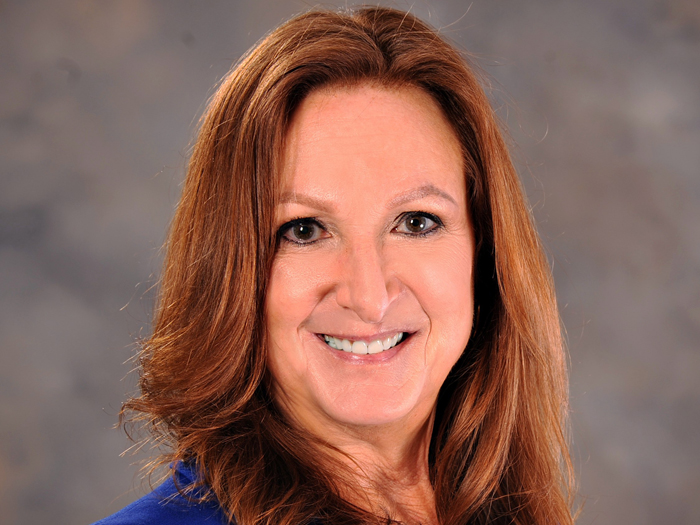6 Questions for Travelers’ Joann Balous on the Prominent Role CFOs Play in Risk Management and Insurance

At RISKWORLD 2024, Risk & Insurance® sat down with Joann Balous, vice president of national accounts, Travelers, to discuss the key findings from Travelers’ recent CFO survey and the evolving role of CFOs in the insurance industry. What follows is a transcript of that conversation, edited for length and clarity.
Risk & Insurance: What were the key findings from Travelers’ recent CFO survey, and how do these insights shape your approach to product development and risk management solutions?
Joann Balous: In January and February, we conducted a survey of 610 CFOs and heads of finance at large companies, defined as having 500 or more employees, across various industries. The goal was to understand the decision-making process and priorities of these key stakeholders when it comes to the financial insurance products, services and capabilities they seek from carriers.
By gaining insights into the topics that matter most to CFOs, we can tailor our products more effectively. Ultimately, this knowledge allows us to work more successfully with our brokers and agents in offering the risk management and mitigation solutions that align with the needs and expectations of CFOs.
R&I: The role of CFOs in the insurance industry seems to be more significant than many people might assume. Would you agree with that assessment?
JB: Absolutely. Our study focused on four key aspects, the first being the expanding role of CFOs. In the past, they primarily dealt with financial matters such as balance sheets and audits, relying heavily on their financial skills. However, in recent years, they have increasingly collaborated with their risk management teams and communicated this information to CEOs.
Interestingly, CFOs view this as a more significant part of their role, likely due to the changing tenure of CFOs. The study revealed that 8% of surveyed CFOs had less than two years of tenure, while two-thirds had between two and 10 years, and 29% had 10 years or more.
The younger generation of CFOs, particularly those with two to 10 years of tenure, are taking on more responsibilities in internal and external communications with stakeholders. This requires a different level of emotional intelligence. During a panel discussion [at RISKWORLD], a CFO from one of our national accounts clients emphasized that their role extends beyond just numbers.
R&I: How has the role of the CFO evolved in recent years, particularly as it relates to the insurance industry?
JB: The role of the CFO has undergone significant changes in the last five to seven years, especially in the insurance market. As the property market began to shift, CFOs found themselves more involved in decisions regarding layers, deductibles and other technical aspects of insurance.
However, the post-pandemic era has brought about even more transformative changes to the CFO’s responsibilities. With the altered workforce dynamics, such as the rise of remote work and the challenges in attracting and retaining talent, CFOs have had to engage more closely with HR and safety managers to navigate these issues.
Regular communication and collaboration with these departments have become crucial for CFOs in managing the workforce effectively. The pandemic has reshaped the role of the CFO, requiring them to adapt to the new normal and address the unique challenges posed by the changing labor market and employee expectations.
R&I: What were the key pain points or concerns for CFOs, according to the survey?
JB: The survey revealed that CFOs are primarily concerned with their expanding role and ensuring they possess the necessary emotional intelligence and communication skills to navigate these changes effectively. Cybersecurity also emerged as a major concern, with CFOs worried about the potential for cyber threats, such as ransomware attacks, and the impact on their company’s financial integrity and reputation.
Additionally, macroeconomic factors — including inflation, talent acquisition and market competition — were identified as key concerns. However, despite these challenges, the survey also found that 88% of CFOs were confident in their company’s balance sheet stability. This confidence allows them to invest in cybersecurity measures and digital technology to protect their organizations from cyber threats.
Furthermore, two out of five CFOs believed that their balance sheets were strong enough to pursue mergers and acquisitions if the right opportunity presented itself. While CFOs expressed concerns about the recent jobs report and ongoing inflation, they generally felt well-positioned to navigate these challenges.
R&I: What are the key takeaways for risk management, insurance or distribution networks based on the concerns and action items you mentioned?
JB: Our survey revealed that 70% of CFOs meet with their risk manager or risk management team on a daily or weekly basis. It’s part of their regular routine to understand what’s happening in various markets, such as property, cyber and liability.
They want to ensure they are adequately protected and partnered with the right carrier. The liability market, which some refer to as social inflation but we now call legal system abuse, is a significant concern due to its financial and reputational impact.
CFOs rely on subject matter experts for guidance; 31% turn to their insurance agents or brokers, while 24% rely on internal resources like their risk manager or risk management department. Another 24% seek advice from insurance carriers.
R&I: Could you list the key takeaways from your perspective, particularly regarding the current labor market?
JB: There’s a strong sense of optimism despite the challenges in the labor market. The pandemic has led to significant shifts, such as the great resignation and evolving employee demands.
However, Travelers found CFOs are taking steps to navigate these changes. Key priorities they mentioned include investing in digital capabilities and talent development and also maintaining the integrity of the balance sheet.
Furthermore, 40% of respondents indicated they have the ability to pursue M&A opportunities should they arise. This financial strength and adaptability contribute to the overall optimistic outlook. &










